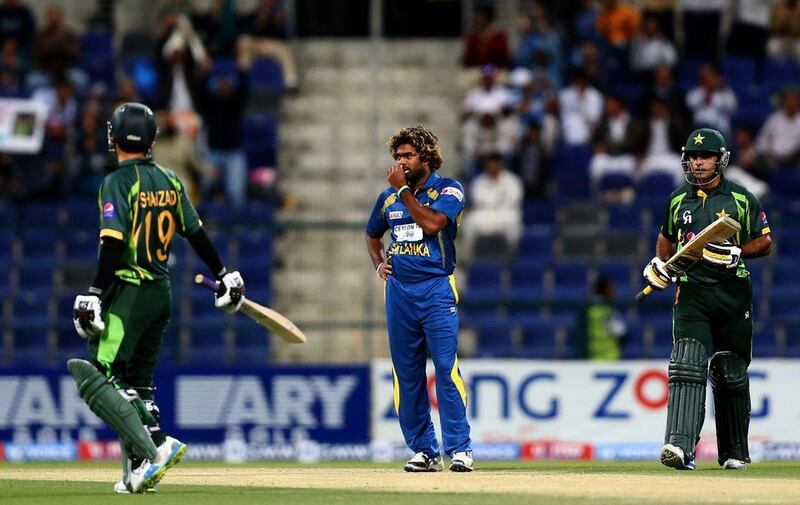The ICC will be trialling the Officiating Replay System (ORS) during the last ODI between Pakistan and Sri Lanka in Abu Dhabi on Friday, as well as during the first Test between the two at the same venue next week.
The ORS is a key experiment in the ICC’s continuing bid to improve the Decision Review System (DRS). Though the DRS, in one form or another, is currently a fixture in most international cricket barring that involving India, its usage, implementation and efficiency continues to be a subject of generally heated debate.
The ORS aims to iron out one key wrinkle in the current system, by potentially allowing TV umpires control of the replays they can see, rather than the current scenario, where they remain at the behest of replays the host broadcasters provide them with.
The system was trialled during the Ashes in England earlier this year, where Nigel Llong sat in a separate broadcast truck and effectively mirrored the role - without the authority but with more control over replays - of Kumar Dharmasena who was the third umpire during the third Test at Old Trafford.
In the case of this series, Richard Kettleborough is expected to sit in a separate room with one giant monitor on which will be available numerous different camera angles in front of him and the power to choose which replay he wants to see, including Hawk-Eye.
Effectively, as was said at the time of its first trial in August, the role combines that of a third umpire and a TV broadcast director. Kettleborough will have no impact on the decisions in the matches itself: Richard Illingworth is the official TV umpire for Friday’s ODI and it is his decisions that will matter.
This is purely a trial, the ICC hoping to add Kettleborough’s views and experience to those of Llong as it tries to strengthen the case for universal implementation, in some form, of the DRS.
One of the aims of the ICC from this trial is to speed up the process of DRS, which is one of the most common criticisms of the system. It is also believed that giving the umpire greater control over replays eases concerns of boards, in particular that of India, that DRS could be prone to broadcaster biases.
The setting for this stage of the experiment is appropriate. Given the heat that constantly surrounds the DRS, a low-key series at a neutral venue away from much of the cricket world spotlight is an ideal laboratory. There has been little controversy surrounding DRS decisions here and, additionally, Friday’s game is also a dead rubber.
Pakistan wrapped up the series with a comfortable triumph at the Sheikh Zayed stadium on Wednesday night, and are likely to tinker with their playing XI to bring in players who have not participated yet during the series.





